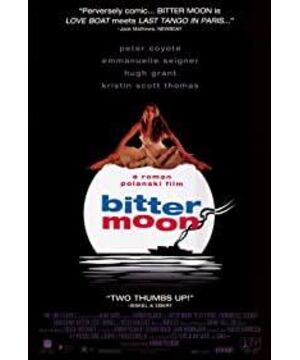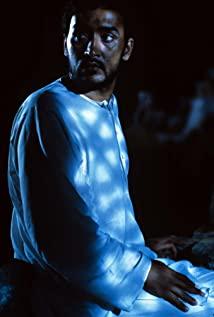The film review was written quite casually, mainly around the characters. Don't take it too seriously.
Italians represent a certain kind of eternal pleasure. As soon as he came out, he said "I used to play bridge for 48 hours non-stop" began to imply (btw, this happened to be when Nigel was invited to her room by Mimi, and the Italian was involved in a brawl after that happened to be Fiona and time to start dancing). The director's criticism of him is also quite obvious: after saying the sentence "For eternity, the new year has no commemorative value, so it is not a happy new year but happy every day", he was immediately involved in a fight and was knocked down in the earth; this is no doubt a critique of the impossibility of eternal pleasure.
Indians, on the other hand, offer a sort of postcolonial middle-class perspective. The British couple and their relationship are made quite explicit: the Indian wife has died and the child has no mother. The British couple loved the Indian child very much. The best line in the whole Indian film is: "come on, we all know that India is dirty and messy, and it is impossible to find peace in a city as noisy as Mumbai." (A mockery of the British colonial perspective)
Nigel, offers a child-like, and further, infant-like perspective. Oscar's evaluation of him is quite accurate, he is a hypocrite. It is impossible to be hypocritical without indulging in desire. Seduced by Mimi, he seems to be out of a certain symbolic order, yet he never enters into it. When he wanted to go to Mimi's room and leave the game, he said goodbye to the people at the poker table and wanted to get a response, but no one responded to him. Living in the gap between desire and decency, even after listening to Oscar's story, he never realized that decency is decency for nothingness, and desire is also desire for nothingness, and this is exactly what Mimi rejected him. reason.
And Fiona can be said to be the opposite of Nigel. Fiona is much smarter than him, which is why Oscar says to Nigel at the beginning that "your wife is more charming than you think, and has that kind of British connotation". By the time Nigel betrayed him, she knew even better than Nigel himself that Nigel had never loved anyone. It was also from that time that she realized the impossibility of decency (symbolic order), and she didn't care if her husband really betrayed (if you hurt me, I'd double it back). The person who really understood the story of Oscar and Mimi was Fiona.
So, the main body of the whole film came to Oscar and Mimi. In my opinion, Oscar and Mimi are almost indistinguishable, except for one, and most important, point: Oscar and Mimi actually understand desire at a different point in time. True desire is desire for lack. When Oscar took Mimi and tried all the sex with her, everything was boring, and he knew that if it continued like this, Mimi would be boring, so he proposed to break up. But Mimi didn't understand this. Mimi is forced to be a battered person, forced to be someone who is out of the family mythology (she made Oscar the American turkey, gave everything for him, even got pregnant with his baby, and Oscar just felt irritable) . And when Mimi returned from the island, she understood this too. So she breaks Oscar's legs and has sex with someone else in front of him, "a disabled man," at which point they both understand what desire and love really look like. The deepest hatred, the most distant impossibility becomes the most ardent love and desire. And this supreme, ever-increasing happiness, which even in the sweet love before them, made them bound to destruction. So Mimi had the foresight to give him a pistol on his birthday. That's all they have.
After all this, after the source of hatred dissipates, normal people still have to return to normal people's lives.
View more about Bitter Moon reviews











